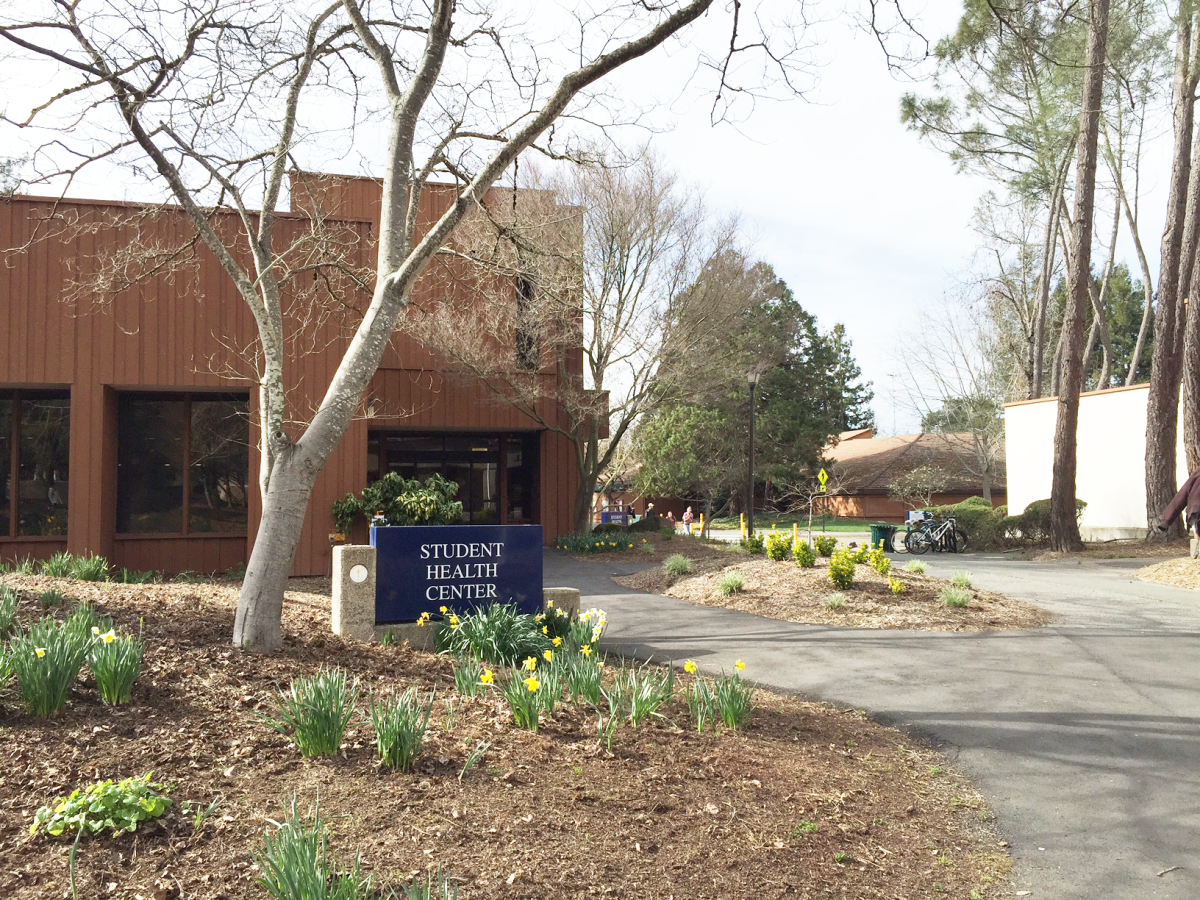There are more than 9,000 students at Sonoma State University excluding staff. Most students don’t realize that touching keyboards, doorknobs and countertops place them at risk for sharing common ailments, including the flu.
The number of influenza cases in Sonoma County has increased significantly according to the Press Democrat. Many hospitals in the region are also seeing an increase in cases compared to prior years.
According to the Center for Disease Control and Prevention website, influenza is on the rise. For this reason, the CDC recommends that “the best way to avoid the flu is by getting a flu vaccine each year.”
The CDC also recommends that those who have the flu, or are at high risk, seek treatment with antiviral drugs. Influenza symptoms usually occur suddenly according to the CDC and may include all or some symptoms of cough, sore throat, headaches, fatigue, muscle or body aches, runny nose and occasionally a fever.
“[We’re] currently seeing [students] with the flu,” said Toni Boracchia, health education nurse at Sonoma State. “If you are having body aches, fever and a cough you are more than likely having the flu instead of a cold.”
Sonoma State offers influenza immunization for $15 for students. The immunization is a “quadrivalent vaccine” and covers four different flu viruses broadening the range of protection against the various viruses currently circulating. “Immunizations are good until the end of May. We want students to come in if they have a fever and cough and are not feeling well,” said Boracchia.
Influenza symptoms can last for several days but usually last less than two weeks according to the CDC. Complications can also occur with “people that have preexisting condition like asthma and diabetes,” Boracchia said.
The CDC reports that “Young children, adults age 65 years and older [and] pregnant women are among those groups of people who are at high risk of serious flu complications, possibly requiring hospitalization.”
“When you touch a refrigerator door then touch your nose or your eye you are inoculating yourself,” said Boracchia. “Washing your hands frequently is the number one thing to avoid [getting influenza]. Hand sanitizers [also] work good against the flu.”
Students with private health insurance may consider getting the immunization for free. Contact your health provider for details. Students traveling abroad should consider the seasons in the locations where they are traveling. See the Sonoma State Student Health Center Services website for suggestions.
“Let your professors know if you aren’t feeling well, most professors don’t want a coughing student in their class,” Boracchia said.
According to the Kaiser website, “Cold and flu viruses are spread through the air.” Covering your cough or staying home limit exposure to others.
“We want to see [students] sooner rather than later,” Boracchia said “You never wait around at the health center to be seen. You don’t [have] to pay to see us at the health center even if you are a patient at another health center”.
“If you have a sore throat or for any injury [and] you call ahead we can arrange a M.D. appointment. If you have an acute injury we can see you anytime, but we do like to work by appointment, ”Boracchia said. ”Keep the community healthy by immunizing,” she added.
Centers for Disease Control and Prevention website for flu information: https://www.cdc.gov/flu/index.htm
Student Health Center Services is open from 8 a.m. until 5 p.m. Monday – Friday or call (707) 664-2921 for information. https://www.sonoma.edu/shc/



































